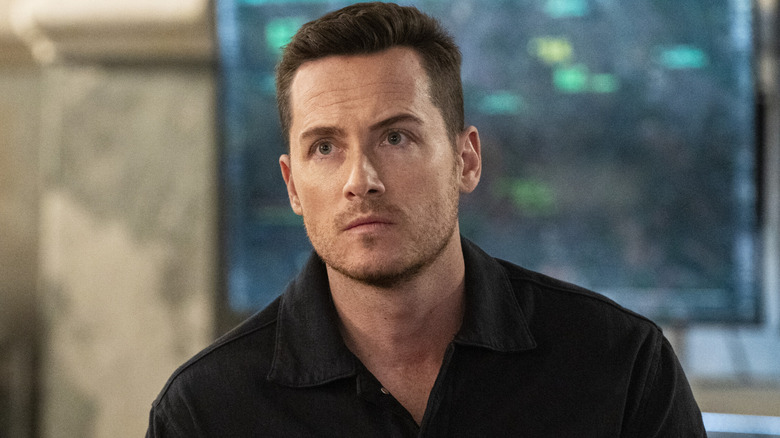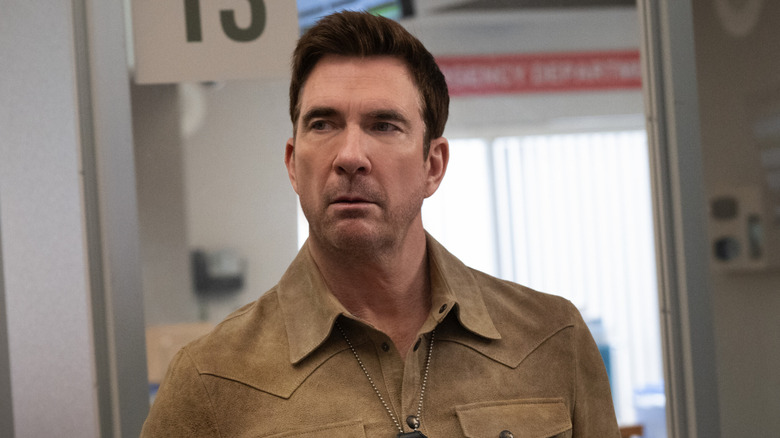
Nelly Kiss/CBS
Part of an elite series of procedurals that continue to rule CBS' airwaves, "FBI: International" and "FBI: Most Wanted" spun off their mothership program and had been doing well enough to keep the lights on for four and six seasons, respectively. But those days are over; "International" and "Most Wanted" will end their runs during the 2024-2025 season, and it appears that they were canceled due to a combination of budgetary constraints and an overcrowded schedule.
While that clearly doesn't mean the end of the "FBI" universe on CBS, it's never a good sign when two spin-offs from the same long-running franchise are axed at the same time. Why are the dramas ending? Will fans receive a satisfying conclusion to the two programs? Will any of those now-displaced characters end up on "FBI" somehow? Is there any hope either show will find new homes on another network, or will fans have to cope with the property's diminished presence? Here's why both series have met their maker and if there's any chance that fans might get more someday.
Why were FBI: International and FBI: Most Wanted canceled?

Mark Schafer/CBS
There's only a finite amount of space on CBS' schedule, and even generally successful examples like the "FBI" shows, "NCIS: Hawai'i" and "The Equalizer" have been chopped. With only 21 hours a week to program and hourlong primetime shows taking up most of the time, there's little wiggle room. Therefore, CBS has to be quite picky, and unless a series is a total blockbuster and inexpensive to boot, it probably won't be picked up.
Cost is the reason why the phrases "deep cuts" and "belt tightening" have become common around Hollywood lately; even NBC's storied One Chicago franchise has been forced to cut actors' episode numbers and trim casts to get renewed. When it comes to the two "FBI" spin-offs, the casts' minimum guarantees were already reduced for the 2024-2025 season, but further budgetary constraints couldn't save either show. It also likely didn't help that "International" in particular went through some cast-related upheaval, with lead Luke Kleintank leaving the program during Season 3 and being replaced by Jesse Lee Soffer.
Another reason why the two "FBI" series probably weren't picked up? CBS has already greenlit the original "FBI" for several more seasons. The network also has "FBI: CIA" waiting in the wings. CBS likely looked at the amount of space it had left to program and decided that a quartet of "FBI" shows possibly on the schedule was way too many. Between "FBI," "Blue Bloods," "Yellowstone," "NCIS" and now "Fire Country," the network has a whole bunch of franchises to work with, so something had to give.
Will FBI: International and FBI: Most Wanted move?

Nelly Kiss/CBS
Both "FBI" spin-offs still pull decent ratings; Would it be possible for the shows to find success on another platform? They wouldn't be the first shows to jump networks and find greener pastures. There's no word as of this writing on whether or not the shows will be shopped around, but producer Dick Wolf has managed to rehome other series to digital platforms after they were canceled by their linear carriers. "Law and Order: Organized Crime" is now a Peacock exclusive after spending time on NBC, for instance.
Wolf might easily shop the "FBI" shows to Paramount+ or some other branch of the Paramount universe. Neither show is network-owned, and both are produced by Universal Television. If another network fails to pick up the two shows, viewers can rest assured that the writers of both series were given a chance to change the endings of their season-wrapping episodes in a way that will hopefully satisfy devotees.
The "FBI" universe has also been known for shuttling its characters between series, so it's possible characters from the two spin-offs will make the rounds elsewhere. At least one "FBI: Most Wanted" character already has strong ties to "FBI" itself: Nina Chase (Shantel VanSanten), who has a child with Stuart Scola (John Boyd). So fans shouldn't worry that they'll never watch any of these folks ever again. We'll see if the "FBI" franchise manages to get back on its feet, but the continued existence of "FBI" and "FBI: CIA" bodes well for the concept's survival.



